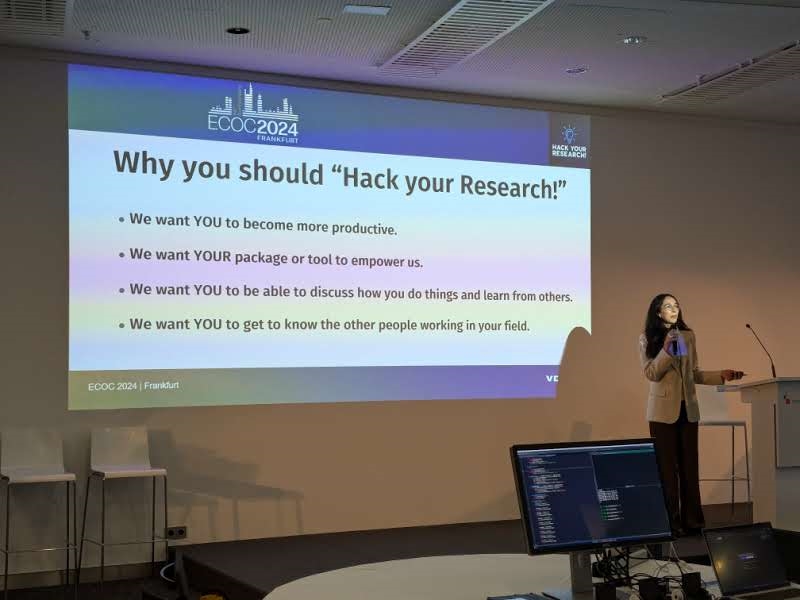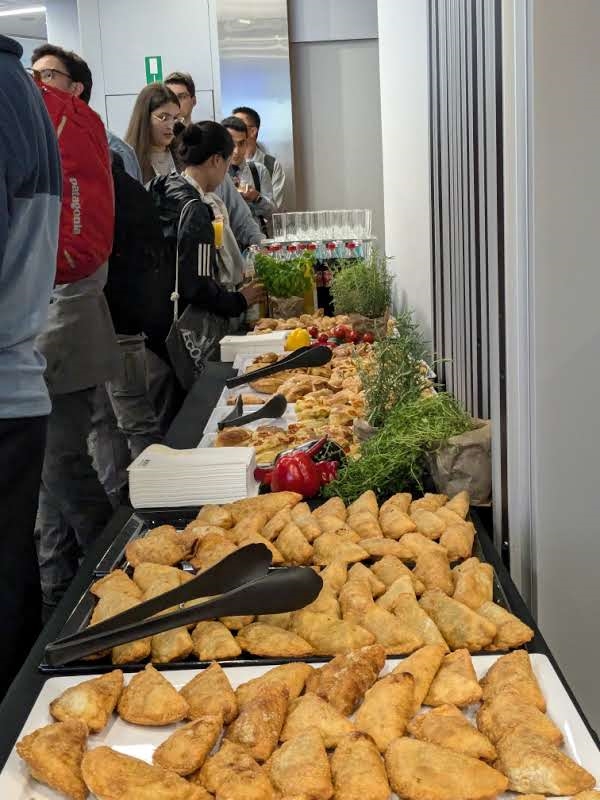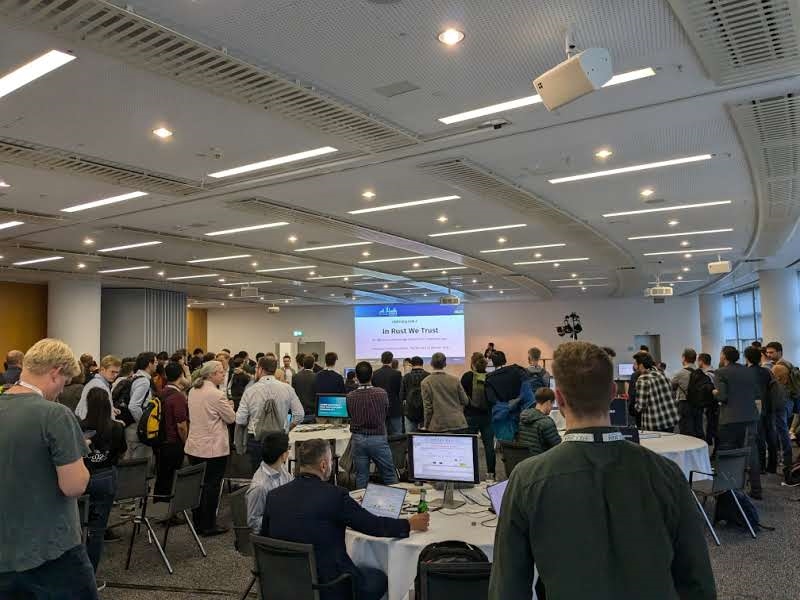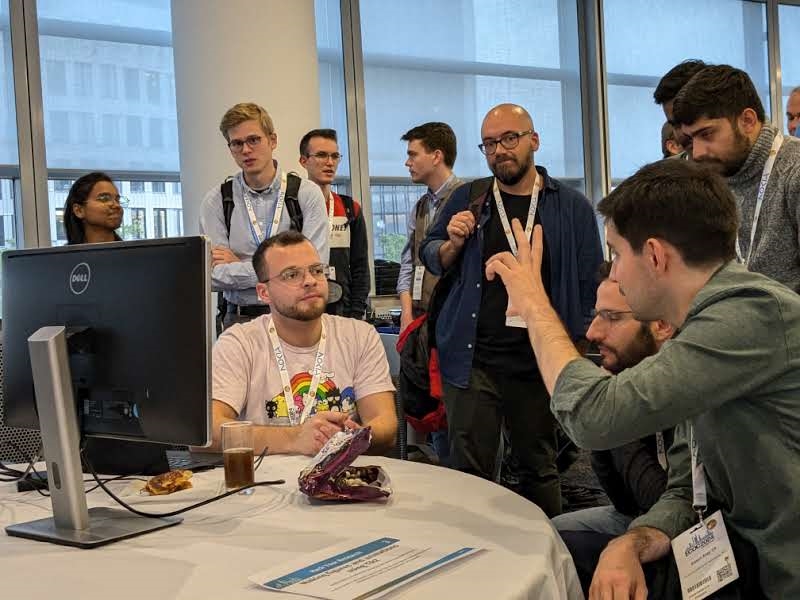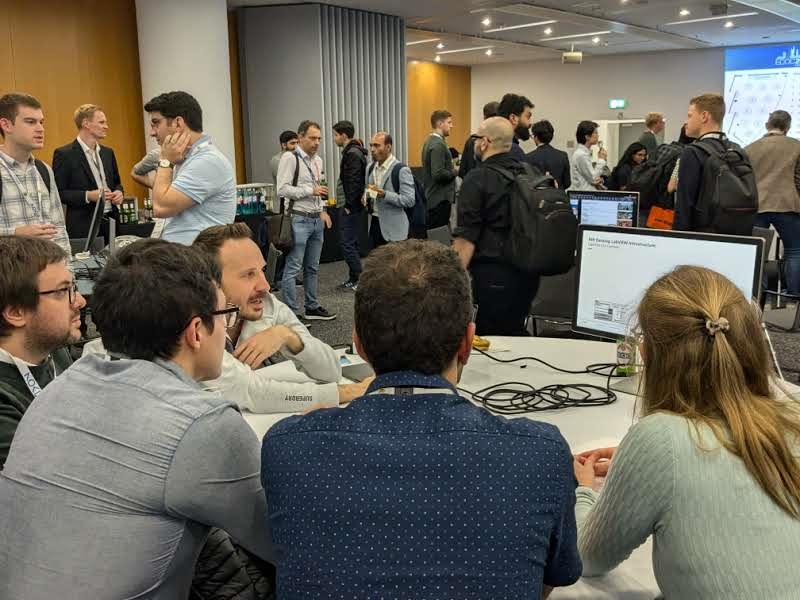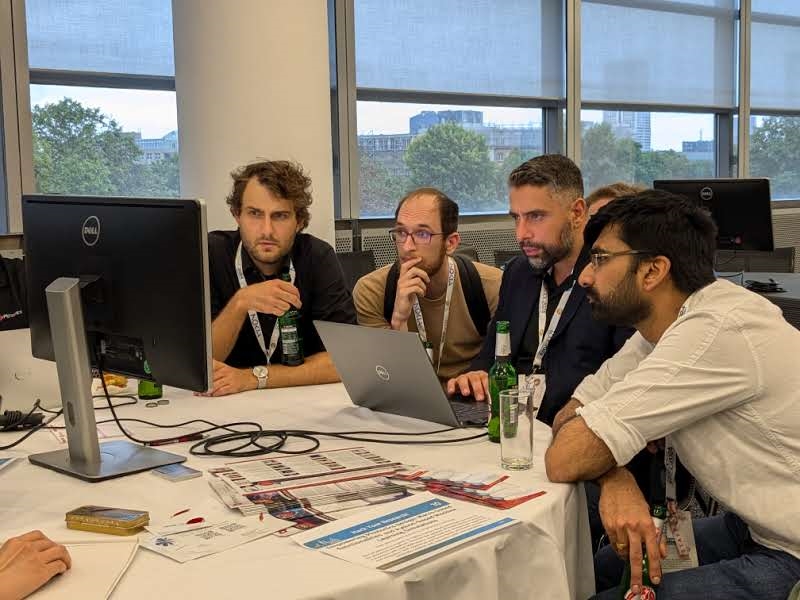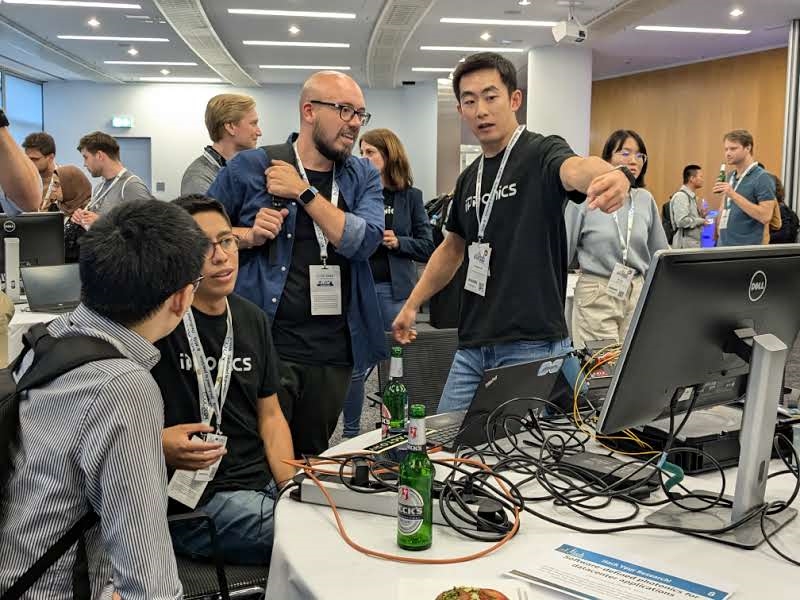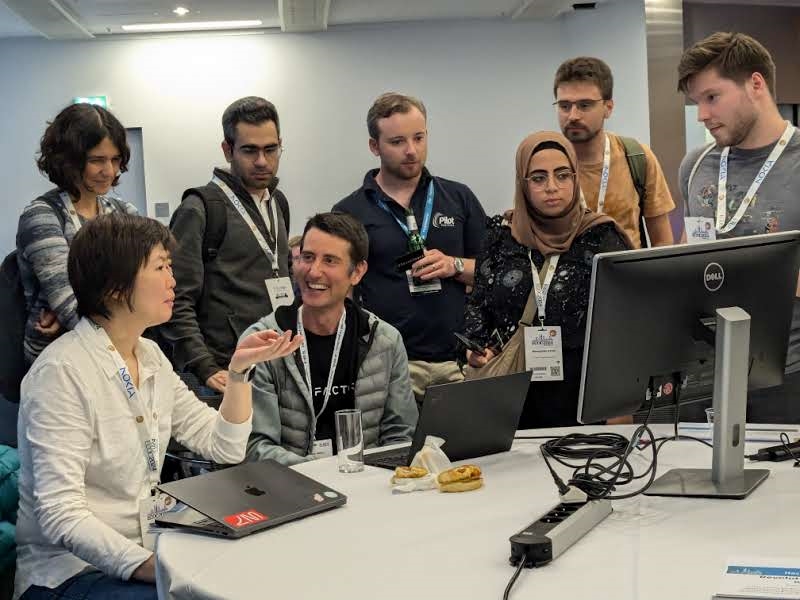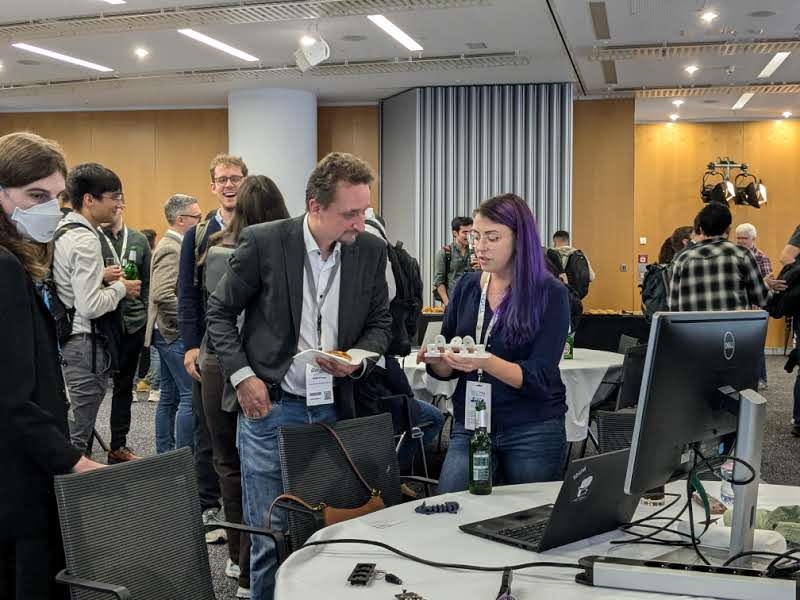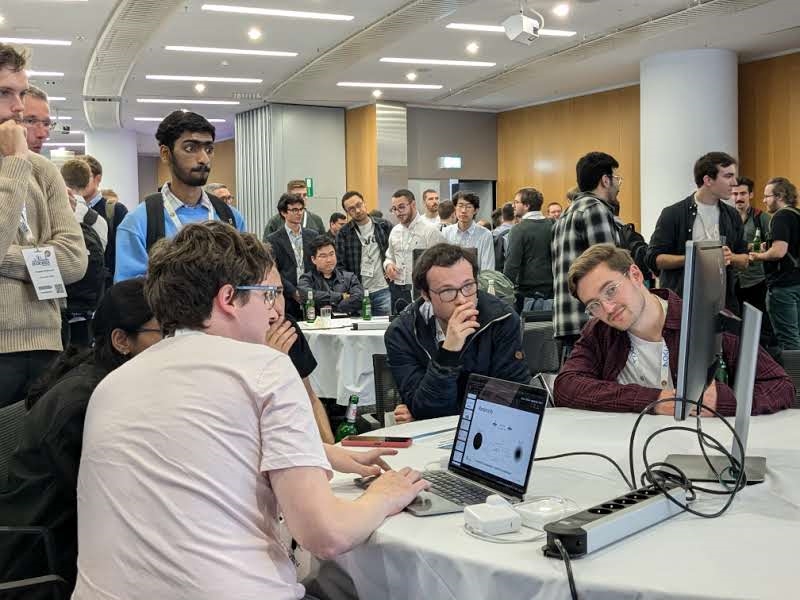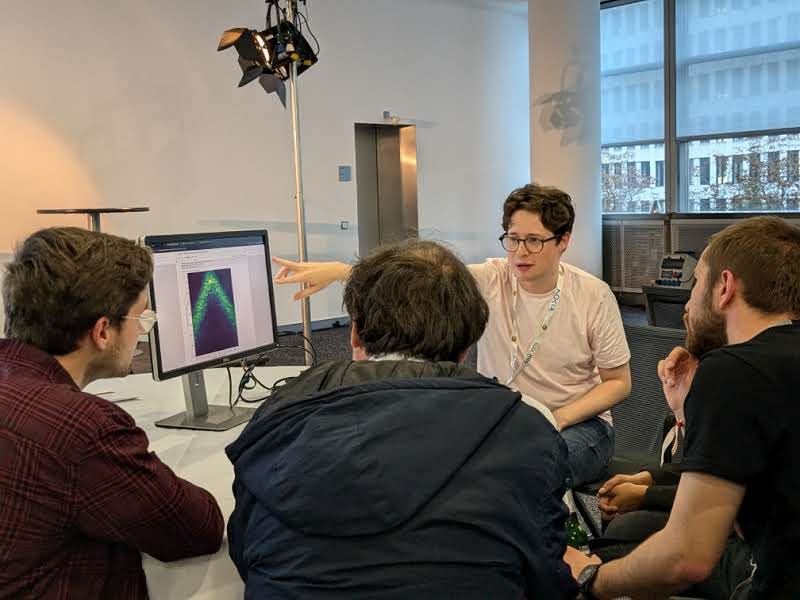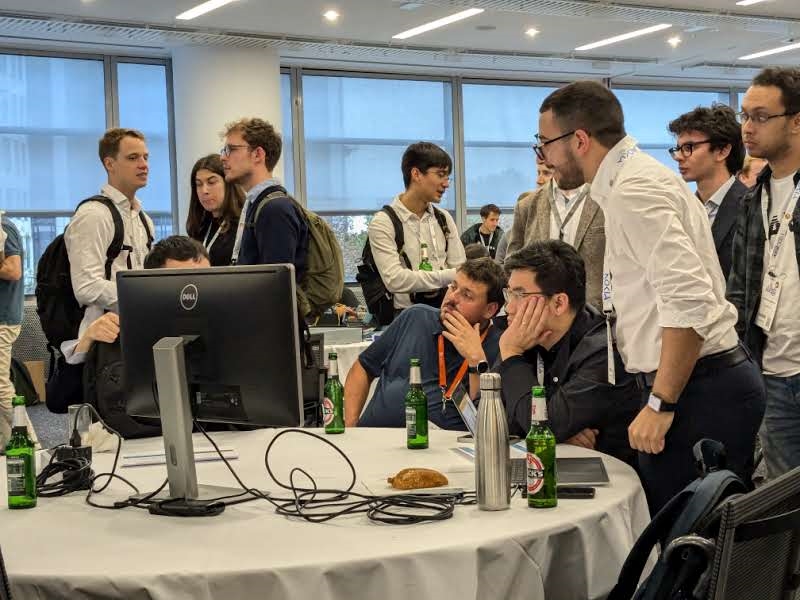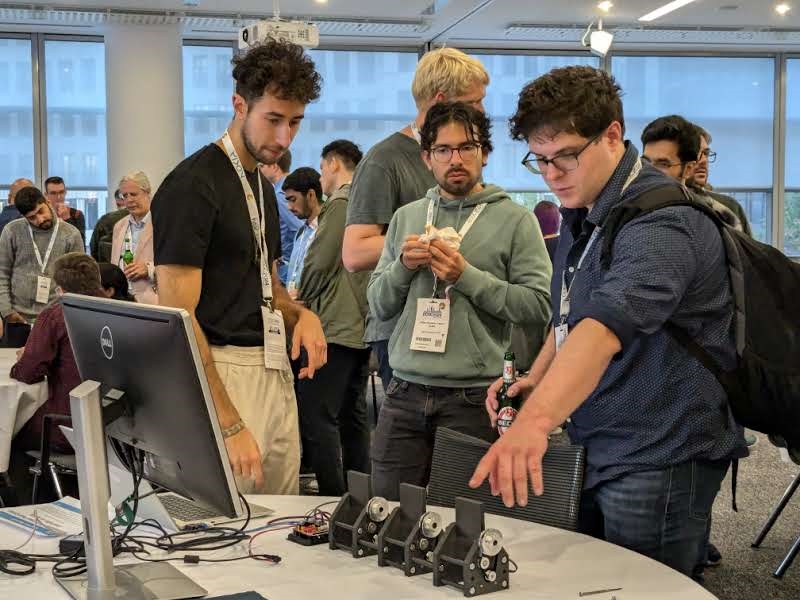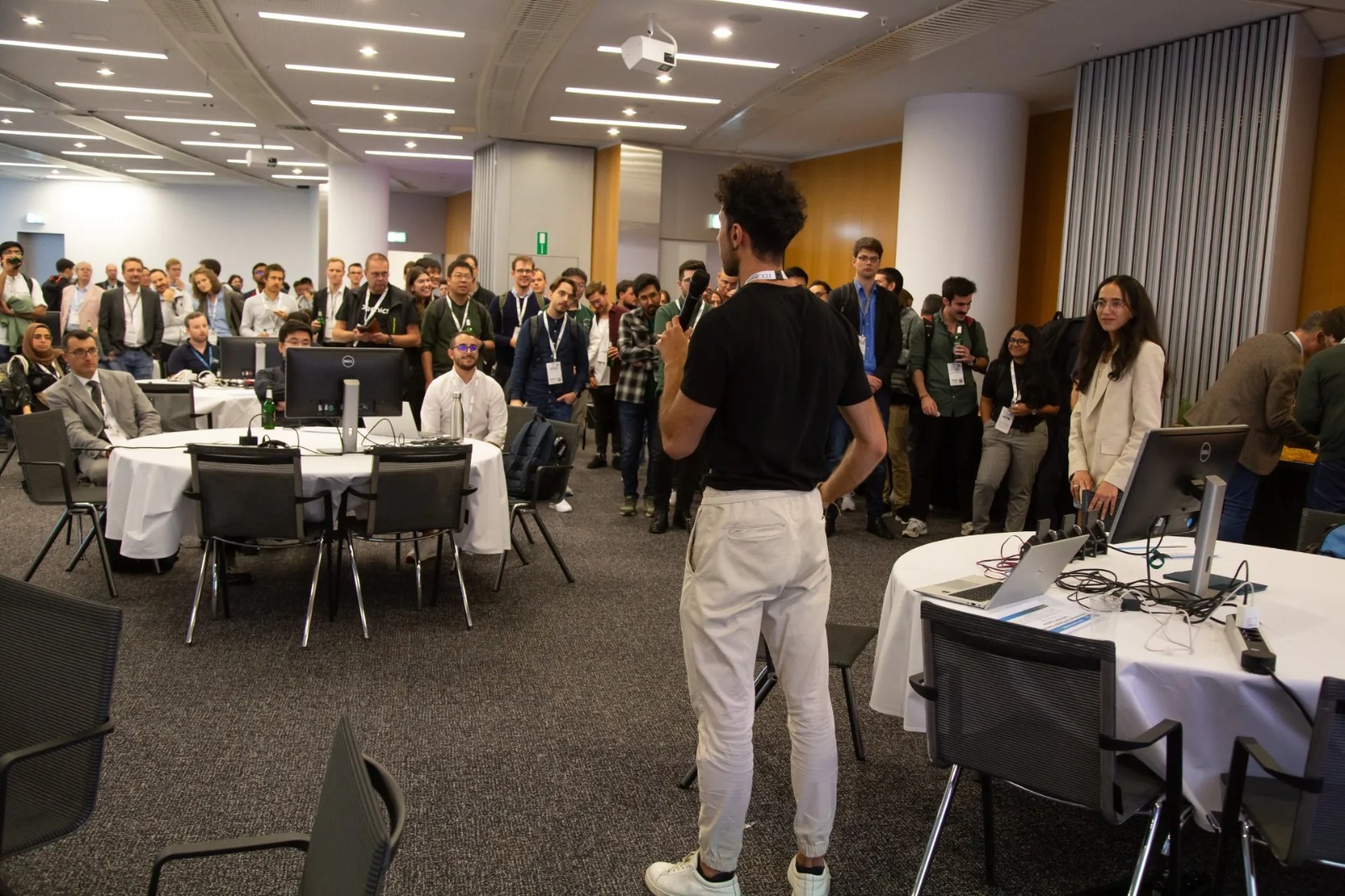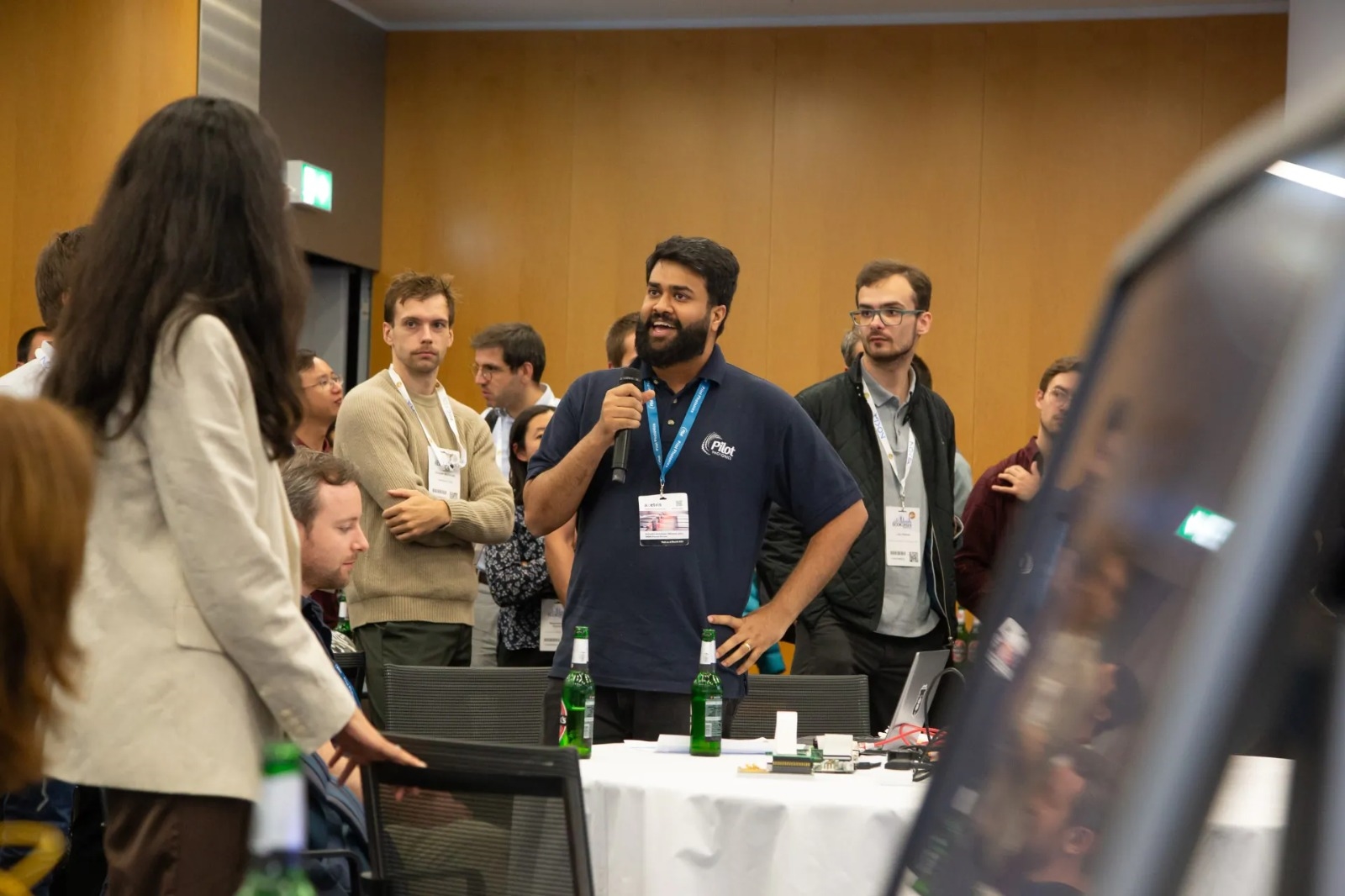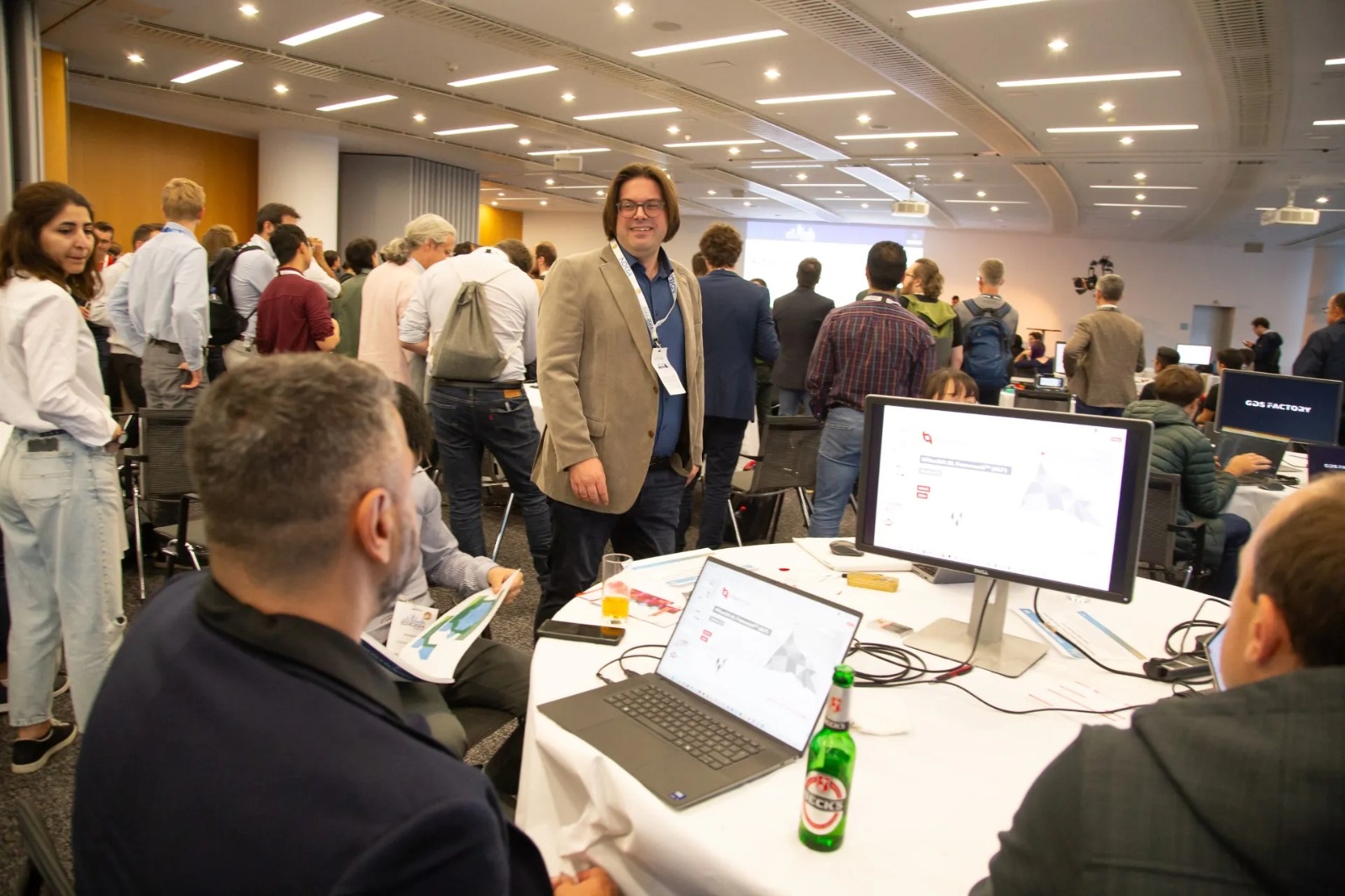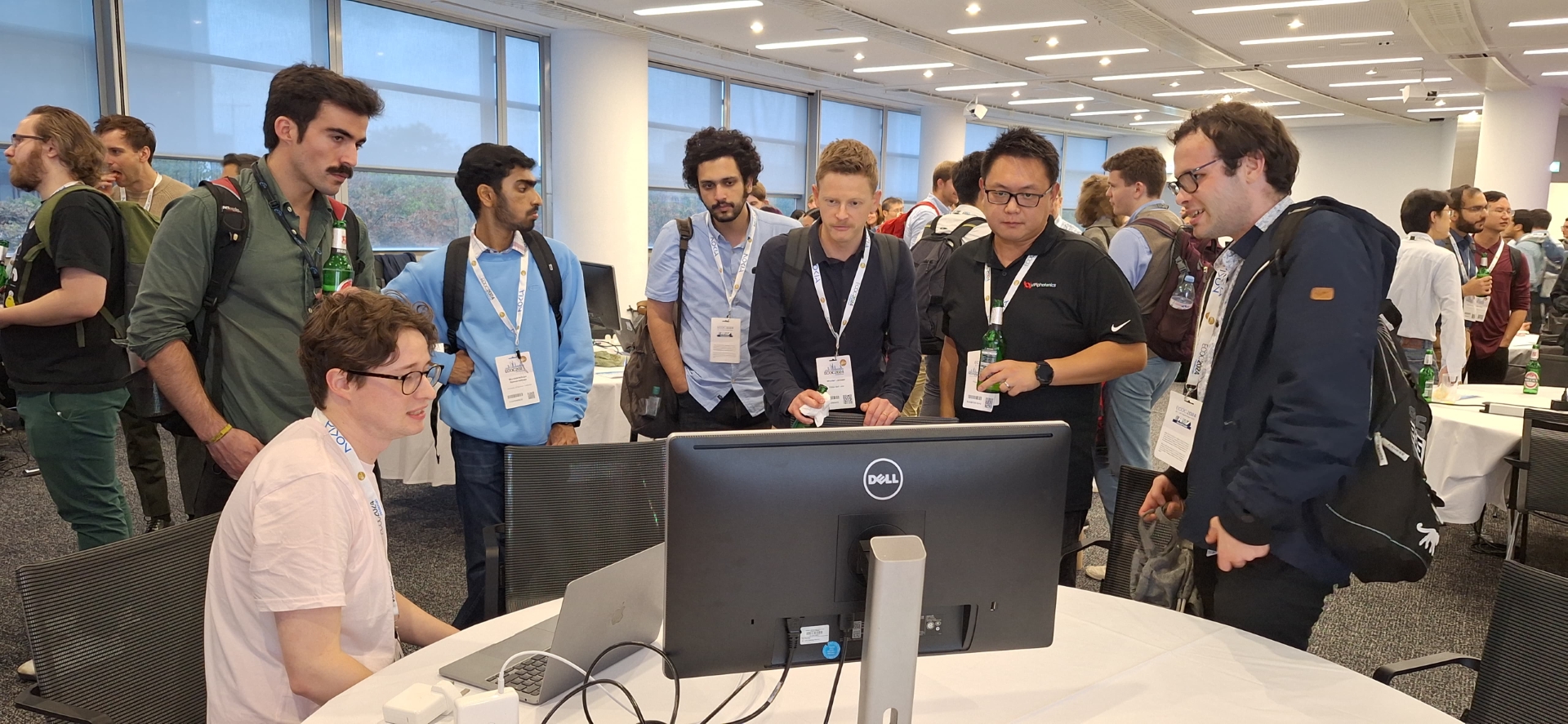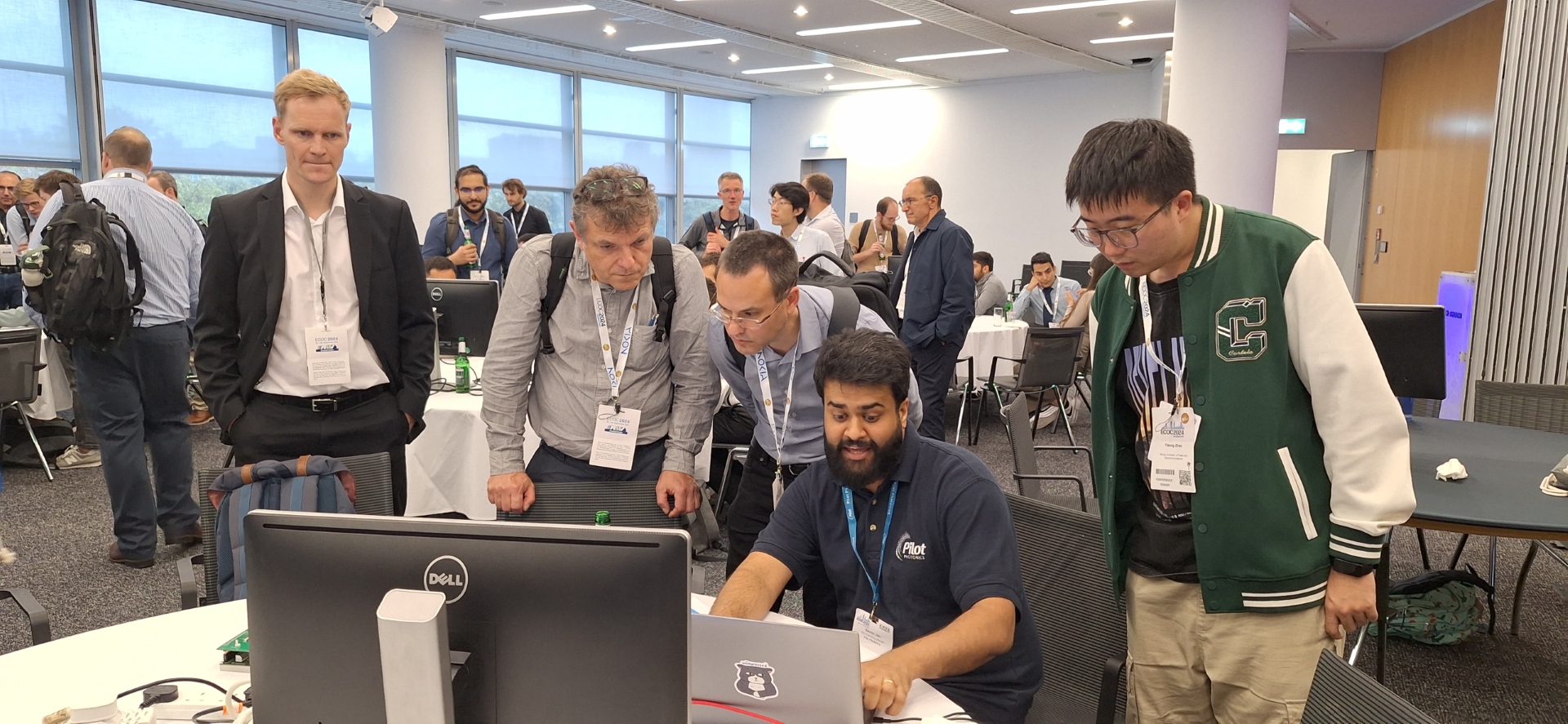Hack your Research! @ ECOC 2024
By Marco
Event Date: Wednesday, 25 September 2024, 6:00pm – 8:00pm CEST
Event Location: Room Illusion, Congress Center Messe Frankfurt, Germany
Link: ecoc2024.org/special-events
Organizers:
Besma Kalla, Eindhoven University of Technology, Netherlands
Amol Delmade, Dublin City University, Ireland
Giammarco Di Sciullo, Università degli Studi dell’Aquila, Italy
Menno van den Hout, Eindhoven University of Technology, Netherlands
Vincent van Vliet, Eindhoven University of Technology, Netherlands
Advisory Committee:
Nicolas Fontaine, Nokia Bell Labs, USA
Roland Ryf, Nokia Bell Labs, USA
Jochen Schroeder, Chalmers University of Technology, Sweden
Marco Eppenberger, PsiQuantum, USA
Demos:
Automatized 3D-Printed Polarization Controller in Action
by Iñaki Beraza, Technical University of Denmark, Denmark
Commercially available polarization controllers are not always the desired size. Plus, automatic ones are expensive and hard to customize. Therefore, we designed and 3D-printed our own PC and automatized it. In this demo, we will show the PC and how we can control it through simple functions and GUI, using Arduino.
Simulating optical turbulence and adaptive optics with FAST
by Ollie Farley, Durham University, United Kingdom
FAST is an open source, python-based simulation tool that allows rapid characterisation of the effect of optical turbulence on ground-space uplink/downlink, including mitigation with adaptive optics. We will explore how to set-up and run simulations, showing just how quickly you can obtain useful results.
Making figures and animations using tikz
by Kadir Gümüş, Eindhoven University of Technology, the Netherlands
In this demo I will show how to use tikz to make good-looking figures and animations for use in presentations and papers.
Lab Automation in Large-Scale Transmission Experiments
by Giammarco Di Sciullo, University of L’Aquila, Italy
Lab automation is crucial for enabling large-scale space-division multiplexed transmission experiments. Let’s explore the experimental setups used in recent high-capacity trials and discuss how automation can simplify and enhance the measurement processes.
Rapid prototyping - getting started with CAD and 3D printing tools
by Lauren Dallachiesa, Nokia Bell Labs, USA
Let’s chat about some 3D modeling basics like getting started with Fusion 360, discuss what free CAD tools exist out there, as well as how to use affordable 3D printers to design and fabricate prototypes faster and easier!
Innovative Optoelectronic Testing and Control Solutions
by Gaurav Jain, Pilot Photonics, Ireland
In-house electronics enabling fast prototyping. In this years Hack You Research Pilot Photonics will be showcasing it’s in-house electronics and associated interfaces required for very efficient testing and control of optoelectronic devices. Pilot Photonics will also be showcasing it’s easy to use software which can be very efficiently customized for the characterization and operation of multitude of optoelectronic devices.
LabVIEW and MATLAB the Dream Team for the Optical Transmission Lab?
by Robert Emmerich, Fraunhofer HHI, Germany
The advent of open source has led to a decline in the use of proprietary software environments, such as the graphical programming language LabVIEW and MATLAB. In this demonstration, we will present experiments from our Berlin laboratory using our MATLAB-based coherent transport DSP in conjunction with a LabVIEW-based GUI for configuration and DSP control.
Software-defined photonics for datacenter applications
by David Sánchez, iPronics, Spain
During this demonstration, we will show the first prototype of the iPronics Optical Networking Engine for datacenter management applications that uses Python. The demonstration will include different switching strategy implementations, processing and loss-less operation.
Revolutionize Chip Design with Python
by Joaquin Matres, GDSFactory, USA
For efficient design, verification and validation of integrated circuits and components it is important to have an easy to customize and extend workflow. Python has become the standard programming language for machine learning, scientific computing and engineering. In this tutorial we will use machine learning tools (python, jupyter notebooks, and generative AI) to design 3 types of chips. A heater, a photonic filter and a ring resonator. This will allow you to leverage the machine learning tools into chip design (GDSFactory, Femwell and SAX).
Empowering Photonics Design: Macro-based functionalities and Python-based Machine Learning Simulations
by Elias Giacoumidis and Shi Li, VPI photonics, Germany
Join VPIphotonics experts to explore Python-based techniques and Macros for photonics simulations. Discover the updated VPItoolkit Machine Learning Framework with new applications, supervised and unsupervised algorithms, and integration with JupyterLab and TensorBoard, along with automation of schematic creation and improved toolkit interoperability.
Lightning Talks:
Global Optimisation in Matlab vs Python
by Vincent Wüst, Karlsruhe Institute of Technology, Germany
Pros and cons for using Matlab vs Python for global optimisation problems.
IN RUST WE TRUST!
by Giovanni Simone Sticca, Politecnico di Milano, Italy
Optical network designers struggle between hard-to-use low-level programming languages and slow high-level ones. Rust offers an efficient, user-friendly solution for complex designs.
Photos:
